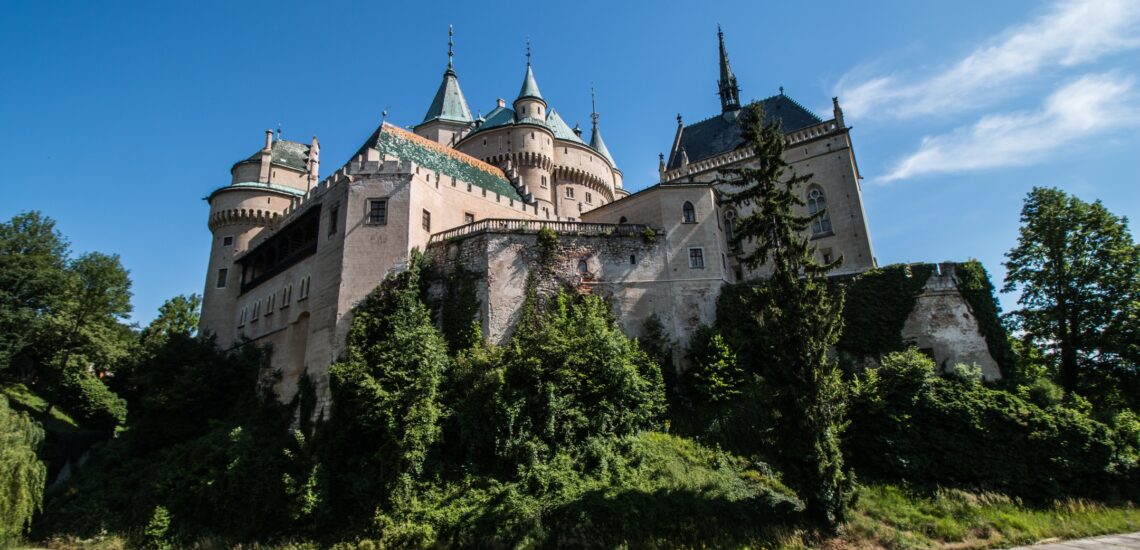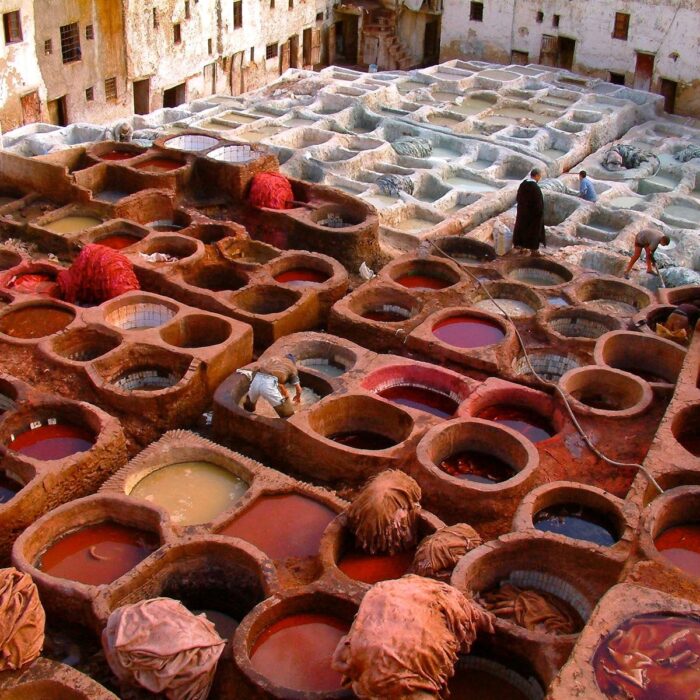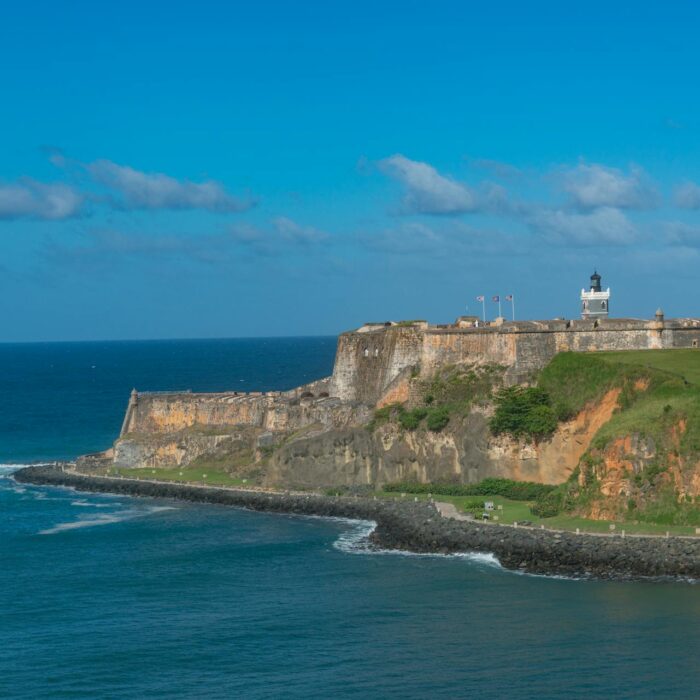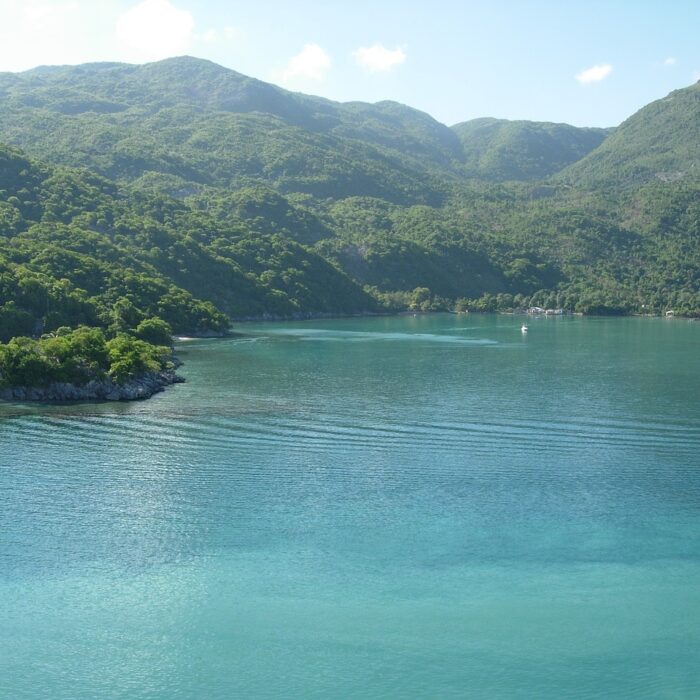10 Interesting Facts About Slovakia
Quick facts about Slovakia:
- Location: Central Europe.
- Capital: Bratislava.
- Population: Approximately 5.4 million.
- Language: Slovak.
- Currency: Euro (EUR).
- High Tatras: Carpathian mountain range with scenic landscapes.
Fact 1: Slovakia gained independence on January 1, 1993
Slovakia, previously part of Czechoslovakia, peacefully gained independence through the Velvet Divorce. On January 1, 1993, the country became a sovereign state, marking the dissolution of Czechoslovakia into two independent nations: the Czech Republic and Slovakia. Since then, Slovakia has developed its own political, economic, and cultural identity as an independent European country.
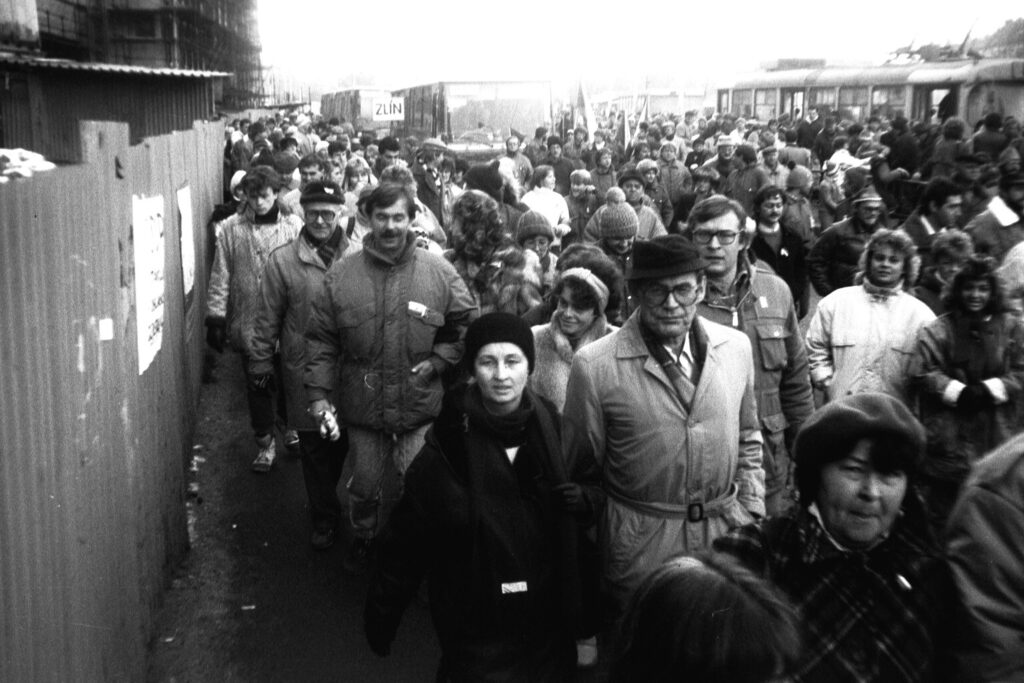 ŠJů (cs:ŠJů), CC BY-SA 3.0, via Wikimedia Commons
ŠJů (cs:ŠJů), CC BY-SA 3.0, via Wikimedia CommonsFact 2: There are many preserved castles in Slovakia
Slovakia boasts a rich historical heritage, reflected in its many well-preserved castles and fortresses. These architectural gems span various periods and styles, from medieval strongholds to Renaissance and Gothic structures. Notable examples include Spiš Castle, Orava Castle, and Bojnice Castle. These castles not only serve as historical landmarks but also offer visitors a glimpse into Slovakia’s vibrant past, featuring stunning architecture and captivating tales of kings, queens, and medieval life.
Fact 3: Bratislava shares administrative borders with two countries
Bratislava is a unique European capital as its administrative boundaries touch the borders of both Austria and Hungary. This geographical peculiarity makes Bratislava the only national capital in the world that directly borders two independent countries. The city’s proximity to Austria and Hungary has influenced its cultural and economic ties with neighboring nations, contributing to Bratislava’s distinctive position in the heart of Central Europe. Also Bratislava and Vienna are the closest country capitals in the world.
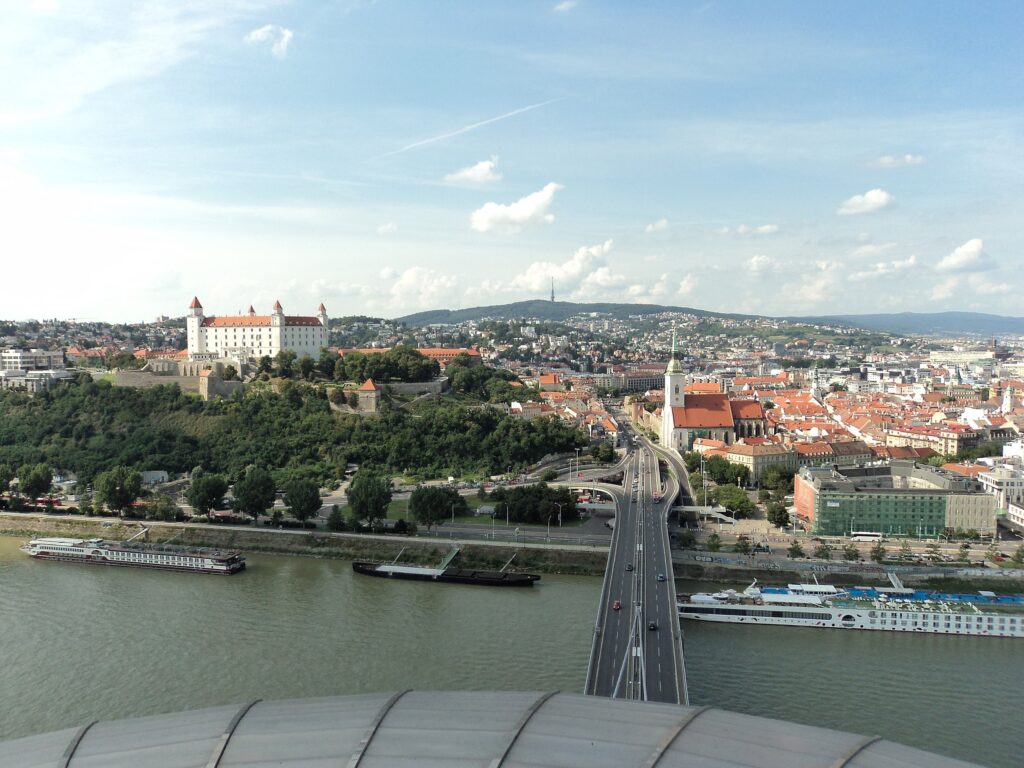 Gabkakrehelova, CC BY-SA 4.0, via Wikimedia Commons
Gabkakrehelova, CC BY-SA 4.0, via Wikimedia CommonsFact 4: Beer is widely enjoyed and appreciated in Slovakia
Beer holds a significant place in Slovak culture, with a strong tradition of beer consumption. Slovak people often gather in pubs and beer gardens to socialize, and beer is a popular beverage during various social events and celebrations. Slovakia also has a growing craft beer scene, with local breweries producing a diverse range of beer styles. The love for beer in Slovakia reflects a cultural affinity for this beverage, making it a common and cherished part of social life.
Fact 5: Forests cover more than half of Slovakia’s territory
These woodlands contribute to the country’s biodiversity and serve as important natural habitats. The Slovak Carpathians, in particular, provide suitable conditions for wildlife, including bears. Slovakia is home to a population of brown bears, and these majestic creatures can be found in various national parks and protected areas. The coexistence of extensive forests and diverse wildlife enhances Slovakia’s appeal for nature enthusiasts and eco-tourism.
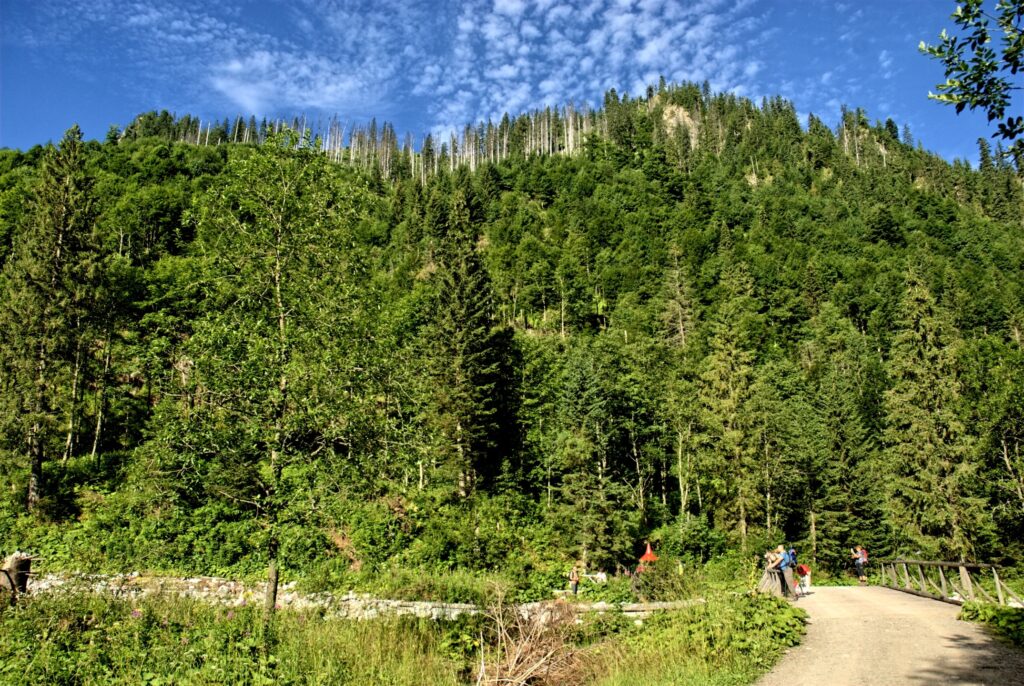
Fact 6: Slovakia has many beautiful caves
Slovakia boasts a rich underground world with numerous stunning caves, each offering unique geological formations and a captivating subterranean experience. Among the notable caves are the Dobsinska Ice Cave, known for its ice formations, and the Domica Cave, a UNESCO World Heritage site. These natural wonders attract visitors with their intricate stalactites, stalagmites, and underground chambers, showcasing the country’s diverse and picturesque landscapes both above and below ground.
Fact 7: Slovakia has a Devil’s Stone a unique natural phenomenon
The Devil’s Stone, known as Čertova skala in Slovak, is a distinctive rock formation located in the Čachtice region. This geological wonder stands out for its peculiar shape and the folklore associated with it. According to local legends, the Devil himself threw this massive rock from the nearby Čachtice Castle. The Devil’s Stone has become a point of interest, attracting visitors who are intrigued by its unusual appearance and the mythical tales surrounding it.
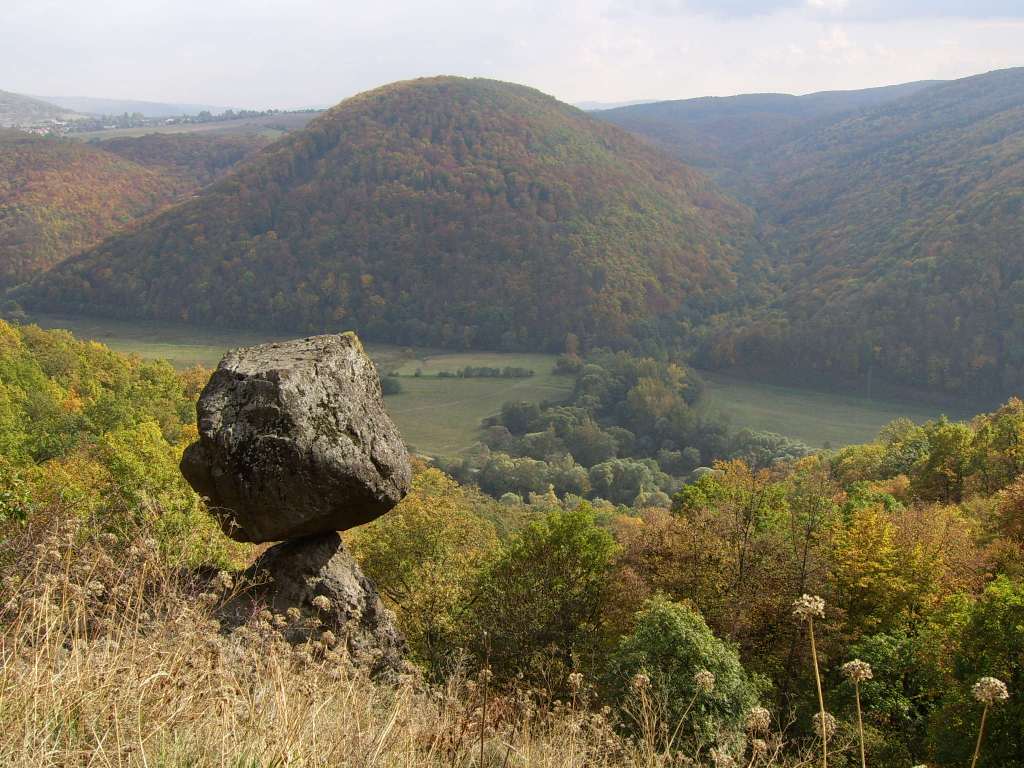 Magda.adgaM, CC BY-SA 3.0, via Wikimedia Commons
Magda.adgaM, CC BY-SA 3.0, via Wikimedia CommonsFact 8: Slovakia features numerous bridges spanning its diverse landscapes
Slovakia is adorned with a variety of bridges that cross its rivers, connecting towns and cities, and contributing to the country’s infrastructure. Notable examples include the SNP Bridge in Bratislava, which spans the Danube River, and the Bridge of the Slovak National Uprising in Banská Bystrica. These structures showcase architectural diversity and serve as essential components of Slovakia’s transportation network, facilitating connectivity and enhancing the scenic beauty of the regions they traverse.
Note: Before visiting the country, find out if you need an International Driver’s License in Slovakia to drive.
Fact 9: There’s a geyser in Slovakia
The Herľany Geyser, located near the village of Herľany in eastern Slovakia, is a rare natural phenomenon. Recognized as the only geyser in the country, Herľany periodically ejects water and steam into the air, creating an impressive display. The geyser is a result of natural carbon dioxide emissions interacting with underground water sources. This unique attraction draws visitors who marvel at the geothermal activity and the spectacular eruptions of the Herľany Geyser.
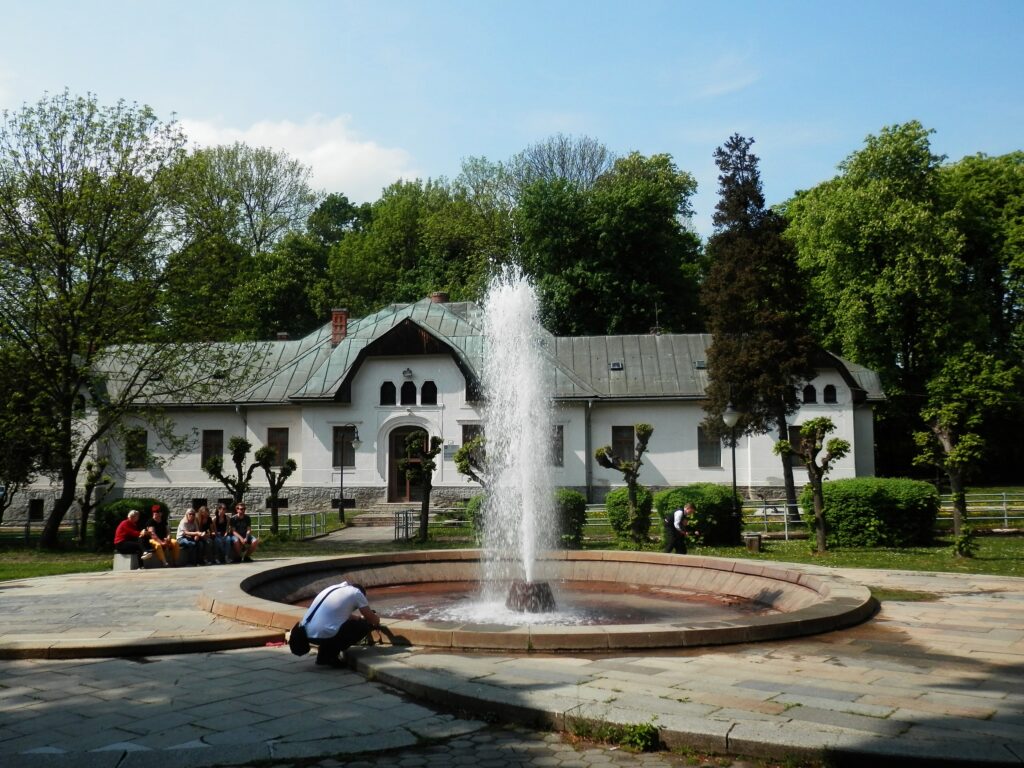 Ing.Mgr.Jozef Kotulič, CC BY-SA 4.0, via Wikimedia Commons
Ing.Mgr.Jozef Kotulič, CC BY-SA 4.0, via Wikimedia CommonsFact 10: The village of Čičmany in Slovakia is renowned for its traditional wooden houses
Čičmany, situated in the Zilina Region, is celebrated for its unique and well-preserved wooden architecture. The village is characterized by charming houses adorned with distinctive white geometric patterns, known as “painting on wood.” This traditional Slovak folk art style, featuring geometric shapes and motifs, adds to the picturesque allure of Čičmany. The village has become a cultural landmark, attracting visitors who appreciate its historical charm and the beauty of these intricately decorated wooden homes.

